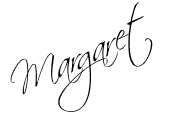
The ideal time to write is first thing in the morning, says Robert Olen Butler in his book, From Where You Dream.
Why? Because that’s when you’re closest to “The Zone.”
“The Zone,” he says, is the white-hot center of the unconscious, the birthplace of art.
It’s where the analytic flow of your brain stops and your total attention is on the moment-to-moment sensual flow of experience from the unconscious.
According to Butler, the theologians have their dogma, the philosophers their theories, the scientists their scientific principles, and the psychoanalysts their Jungian or Freudian insights, but the artist selects from sensual moment-to-moment experience, picking out bits and pieces of it, reshaping it, recombining it into an object that a reader in turn encounters as if it were experience itself.
The primary point of contact for the reader is going to be an emotional one, and because emotions reside and are experienced in the senses, they are best expressed in fiction through the senses.
Butler states that emotions are experienced and therefore expressed in fiction in five ways:
- A sensual reaction inside our body (temperature, heartbeat, muscle reaction, neural change).
- A sensual response that sends signals outside our body (posture, gesture, facial expression, tone of voice, etc.).
- Flashes of the past, not as ideas or analyses, but little vivid bursts of waking dream (images, sense impressions).
- Flashes of the future, something we desire or fear or otherwise anticipate (images, bursts of waking dream).
- Sensual selectivity. In the moment, only a small number of sensual clues impinge on our consciousness (Our emotions make the selection).
You’ll know if you’re writing from your head instead of the flow state or dream state if your story is full of abstraction, generalization, summary, analysis, and interpretation.
In order to write good fiction, you must get into “The Zone,” and in this book, Robert Butler shows you how. A few of his suggestions include: write first thing in the morning, write every day, and write a sense-based journal (For journal writing exercises to get you into the zone, try Brian Kiteley’s The 3 A.M. Epiphany).
Butler’s ideas fit right in with one of the central themes of my novels, plus the title of my blog.
But that’s another story.
As always, thanks for stopping by.


I dream constantly, multiple dreams just prior to awakening. They are vivid, descriptive dreams that I can 'pull back' and remember if I concentrate long enough, soon enough after waking.
I described one of my dreams to a writing friend of mine, and was told to 'write it down' becasue it sounded like a scene that could be used in a fiction piece. I followed this direction but have yet to do anything with it.
Also I am fascinated by dreams, they are so mysterious and many times reveal the stugggles one deals with in waking hours. Dreams are an extremely interesting phenomenan.
Oh yes, dreams are interesting and mysterious and reveal much about us. Now, if only it were easier to remember them. You are wise, Bernadine, in writing them down. It's amazing how they can add to a scene, especially if they are as vivid and descriptive as you say. Hold on to them. You never know when they will come in handy.